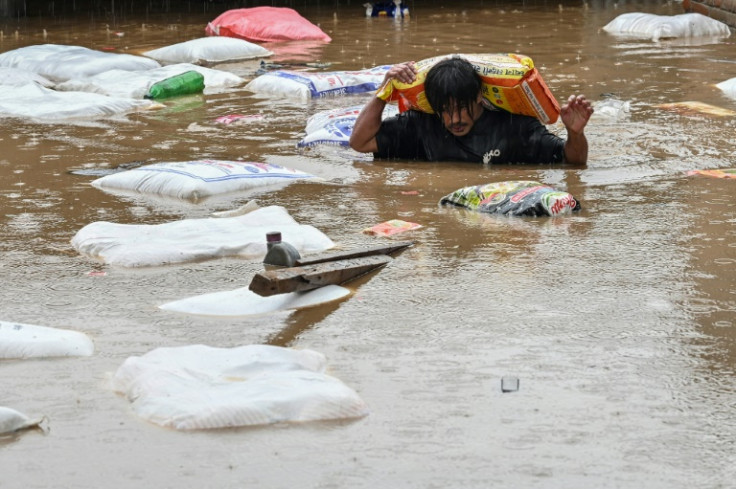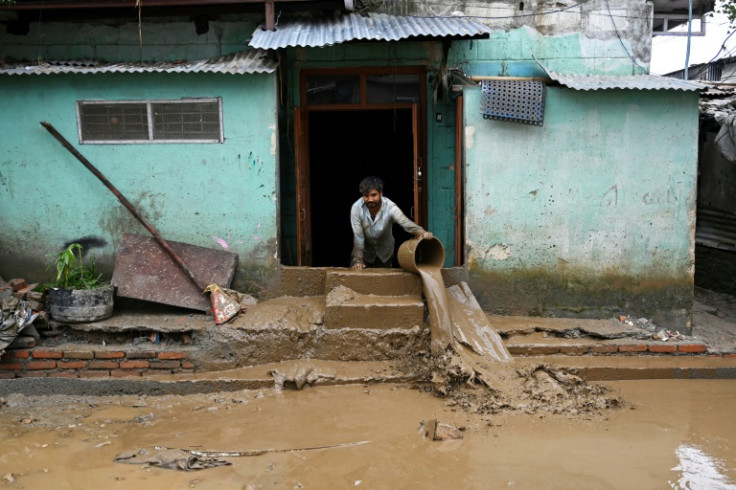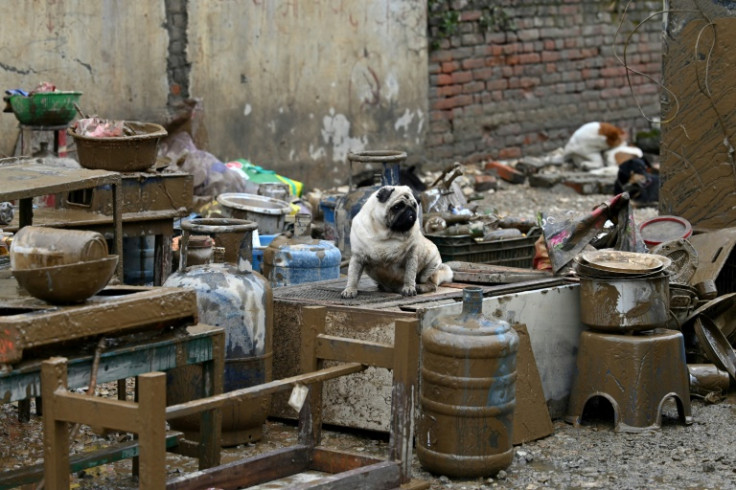At Least 148 Dead In Nepal Floods, Landslides After Relentless Monsoon Rains
Residents of Kathmandu returned to their mud-caked homes on Sunday to survey the wreckage of devastating floods across the Himalayan republic.

Residents of Nepal's flood-hit capital of Kathmandu returned to their mud-caked homes on Sunday to survey the wreckage of devastating floods that have killed at least 148 people across the Himalayan republic.
Deadly rain-related floods and landslides are common across South Asia during the monsoon season from June to September, but experts say climate change is increasing their frequency and severity.
Entire neighborhoods in Kathmandu were inundated over the weekend with flash floods reported in rivers coursing through the capital and extensive damage to highways connecting the city with the rest of Nepal.
Kumar Tamang, who lives in a slum area by a riverbank, told AFP that he and his family had to flee after midnight on Saturday as waters rushed into his shack.
"This morning we returned and everything looks different," said the 40-year-old father.
"We couldn't even open the doors to our house, it was jammed with mud," he added. "Yesterday we were afraid that the water would kill us, but today we have no water to clean."
Nepal's National Disaster Risk Reduction and Management Authority said 148 people have been killed across the country with another 59 still missing.
Home Ministry spokesman Rishi Ram Tiwari told AFP that bulldozers were being used to clear several highways that had been blocked by debris, cutting Kathmandu off from the rest of the country.
"More than 3,000 people have been rescued," he added.
At least 36 of those killed were traveling in three vehicles and were buried alive when earth from a landslide plunged onto a highway south of Kathmandu, Nepal Police spokesman Dan Bahadur Karki told AFP.
The valley in which the capital sits recorded 9.4 inched (240 millimeters) of rain in the 24 hours to Saturday morning, the country's weather bureau told the Kathmandu Post newspaper.
It was the highest rainfall recorded in Kathmandu since at least 1970, the report said.
The Bagmati river and its numerous tributaries which cut through Kathmandu broke their banks, inundating nearby homes and vehicles after midnight on Saturday.
Residents struggled through chest-deep water to get to higher ground.
Bishnu Maya Shrestha, who lived in another inundated area of Kathmandu, said his family had to cut the roof of their homes to escape.
"We jumped from one roof to another to safety and finally they came with boats to rescue us," Shrestha told AFP.
More than 3,000 security personnel were deployed to assist rescue efforts with helicopters and motorboats.
Rescue teams were using rafts to pull survivors to safety.
Domestic flights resumed in and out of Kathmandu by Sunday morning after weather forced a complete stoppage from Friday evening, with more than 150 departures cancelled.
The summer monsoon brings South Asia up to 80 percent of its annual rainfall.
Monsoon rains from June to September bring widespread death and destruction every year across South Asia, but the number of fatal floods and landslides has increased in recent years.
A landslide that hit a road in Chitwan district in July pushed two buses with 59 passengers into a river.
Three people were able to escape alive, but authorities managed to recover only 20 bodies from the accident, with raging flood waters impeding the search.
More than 260 people have died in Nepal in rain-related disasters this year.



© Copyright AFP 2024. All rights reserved.





















